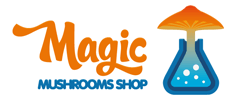Poppy | Papaver Somniferum | Afganistan and India - Seeds of the Gods
Availability: In stock
Contents
Contains 5 grams Poppy seeds. In hermetically sealed packaging. The India variety grows white flowers. The Afghanistan variety grows lilac flowers. In all other respects, both varieties are identical.
Effects of Poppy
The Papaver Somniferum, a type of poppy flower, is both famous and notorious for its seed bulbs. These bulbs are the natural source of opium. Opium poppy is also the source of opium derivates like morphine, heroin and codeine
Opium works as a sedative, narcotic drug. It brings its user in a sleepy, dreamy state of mind. Opium will make you forget what you were doing and you’ll start feeling euphoric.
Opium contains the opiates morphine, thebaine, papaverine and codeine, amongst others. Morphine is a strong narcotic painkiller. Codeine is a slightly weaker painkiller that induces a languid feeling and also finds use in treating diarrhea. Papaverine is known to induce erections when injected into the penis. Thebaine itself has no narcotic effects, but is used to create other drugs like etorfine.
Poppy seeds contain no psychoactive substances.
Use of Poppy
The seed pod of the Poppy flower contains latex. This milky white latex is the natural resource of opium: it contains around 10% opium on average, although this percentage is quite dependent on the circumstances under which the Poppy is cultivated.
The legal status of opium is different in each country, but in general production of opium is illegal in most places. In the Netherlands, the Opiumwet (Opium Law) states it is illegal to grow Opium Poppy flowers with the purpose of producing opium.
Cultivating Poppy
Cultivating Opium Poppy is legal in most countries, as long as the flower is grown as an ornamental plant and not with the purpose of obtaining or producing opium and its derivates. The poppy also needs to be cultivated in very specific conditions to ensure a high enough opium content. In the Netherlands, for instance, the Opium Poppy tends to have a relatively low opium content, because the soil doesn’t contain many minerals, doesn’t get enough sunlight and quick drainage is quite important.c
Nonetheless, Opium Poppy is fairly easy to cultivate, especially outside in sand or clay soil, although it’s also possible to cultivate the Poppy in a pot - just make sure the pot is deep enough for the plants to grow deep roots. Poppy is an annual plant, but releases plenty of seeds, basically regenerating itself every year in this way. In fact, for some people the Poppy turns from pretty flower into persistent weed - that’s how quickly the Poppy reproduces.
Sow Poppy seeds between September and April. If you’re planning on growing them outside, make sure to do it after the last frost has hit the soil. Poppies can handle some cold, but it’s best to avoid frost in this stage. After sewing, cover the seeds with a bit of soil. Water them until they sprout and keep the soil humid. After about a week, the Poppies should start to grow.
To harvest the Poppy, wait until the flower starts to blossom, generally from June until August. As soon as the pods are out of flower, they are ready to be picked. For the highest concentration of opium, it’s recommended to harvest in the morning, between 7 and 9 AM.
History
Opium Poppy (Papaver somniferum) belongs to the poppy family (Papaveraceae) and was originally found in Southern Europe and West Asia. In ancient Greece, the Poppy was a symbol of Morpheus, the God of Sleep. In Greece, the Poppy was grown to obtain a sedating oil. Only around 300 BC did people discover the milky white latex dripping from the seed bulb is a much stronger anaesthesizing agent. Ever since, Opium Poppy has been very important in the art of medicine, first in the form of pure opium and later also in the form of its isolated derivates codeine and morphine. Even now, morphine is perhaps considered the most important and strongest painkiller known to man.
From the 18th centure onwards, opium also increasingly became known for its recreative purposes. The drug became especially popular in China, where it was imported on a large scale through Western merchants. Several famous opium wars ensued. In the West, the derivate heroin is perhaps most well-known. Heroin is a chemically processed form of morphine with very intense effects. It is highly addictive.
The latex found in Opium Poppy is actually poisonous. Large quantities of it can induce a slow death, preceded by a state of unconsciousness.
The dried seeds of Opium Poppy are known to us for very different reasons: it’s a popular decoration in baking, for instance on cakes, pies and bread.
Warnings
Opium and opiates found in opium are known to be highly addictive.
Cultivating Opium Poppy with the purpose of optaining its psychoactive agents is illegal in many countries.
Producer
Herbs of the Gods has been collecting high quality herbs since 1999. With Seeds of the Gods, they’re presenting a selection of seeds with psychoactive properties from all corners of the world. With these seeds, some soil, and a bit of love and patience, you’ll be able to cultivate your own psychedelic garden! But don’t worry: if you haven’t got that much time or patience, some of the selected seeds are ready for consumption without requiring your green fingers.
| Productcode | su-ps-ai |
|---|---|
| Portions | No |
| Origin | No |
| Species | No |
Customer Reviews
1 Item(s)
- vey nice Review by João
-
good productRating
(Posted on 6/12/2022)
1 Item(s)





